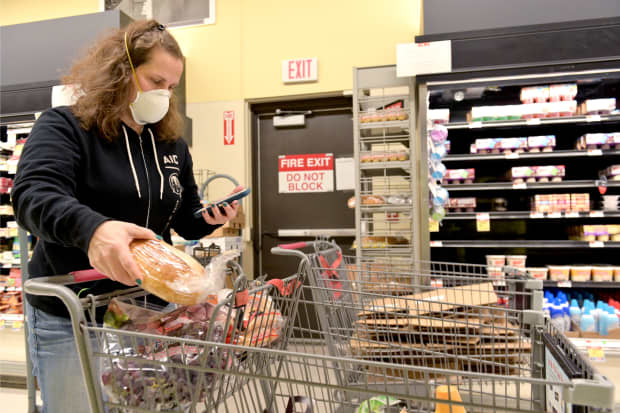This post was originally published on this site

Gig workers who work for Shipt, an on-demand grocery delivery service, are protesting pay changes they claim will lower the amount the can earn from fulfilling orders. It’s the latest protest by gig workers providing essential services during the pandemic.
Getty Images
The nature of gig work, or on-demand one-time jobs, is that wages are unpredictable.
For instance, Uber UBER, +6.01% and Lyft LYFT, +10.24% drivers can go one day without getting many riders and other days with non-stop rides. But that is a risk they’re often willing to take in exchange for the luxury of being able to set their own working hours.
The Target-owned TGT, +1.28% grocery delivery service, Shipt, provided the best of both worlds for gig workers — the ability to set their own hours and have predictable wages equal to roughly 7.5% commission on all orders plus $5, according to shoppers.
(Target did not respond to MarketWatch’s request for comment.)
That was until the company announced it would be rolling out a new algorithm-based compensation system in at least 12 metro areas on Wednesday.
A group of Shipt shoppers call the new system a “black box algorithm payment method” and wrote in a Medium post that it “not only removes all transparency from its shopper compensation calculations but will likely reduce shopper pay by at least 30%.”
Shipt workers are protesting the new pay model by going on strike and not fulfilling any orders on Wednesday.
“ ‘We’ve learned a lot about compensation and all the factors that go into completing a Shipt [order] and we need to financially compensate for shoppers’ time and effort’ ”
The group that authored the post, Shipt Shoppers, did not directly respond to MarketWatch’s request for a comment.
Molly Synder, Shipt’s chief communications officer, said the new pay system won’t result in less pay.
“The goal of this new pay model is not to have a pay cut,” she told MarketWatch. “We’ve learned a lot about compensation and all the factors that go into completing a Shipt [order] and we need to financially compensate for shoppers’ time and effort.”
Under the commission-based system, a Shipt worker who made a quick trip to pick up an iPad AAPL, +0.68% for a customer would get paid roughly the same amount as someone who took on a 50-item supermarket shopping list, Synder told MarketWatch. The new algorithm-based system takes into account the time and effort involved in collecting an order, she said.
Additionally, the new model will account for driving time, she said, because “driving five miles could look different everywhere.” Taking these factors into account, Synder said, will likely allow workers to make more money from their Shipt jobs.
Shipt workers are skeptical of that.
“ ‘Unlike the previous pay structure, which was transparent and commission-based, shoppers will no longer be able to easily discern cuts to their pay, since there is no prescribed amount an order should pay’ ”
When the company began testing the new algorithm-based model in 2019, several workers complained that they saw their take-home pay drop by 40% to 50% in some cases, Gizmodo reported.
Synder denied that workers were earning less under the pay model Shipt tested out in 2019, known as the “V2” model.
“In the nine markets we rolled it out in their pay either stayed the same or increased,” Synder said.
She also pointed out that the company never publicly disclosed exactly how workers’ pay was calculated under the prior commission-based model, and that workers arrived at the pay calculation on their own.
Shipt workers say the new pay model will enable the company “to discretely tweak pay, lower and lower, whenever it wants to.”
“Unlike the previous pay structure, which was transparent and commission-based, shoppers will no longer be able to easily discern cuts to their pay, since there is no prescribed amount an order should pay.”
The Shipt strike is the latest protest by gig workers who’ve continued to provide essential services such as grocery shopping and food delivery as consumers have tried to stay inside amid the pandemic.
Instacart workers went on strike in April to demand hazard pay during the coronavirus outbreak. The company told MarketWatch at the time that the health and safety of workers was its top priority, and that it would provide provide hand-sanitizer spray, offer 14 days of pay to infected full- and part-time employees, as well as sick pay and money incentives to shoppers who complete orders within a certain amount of time.

